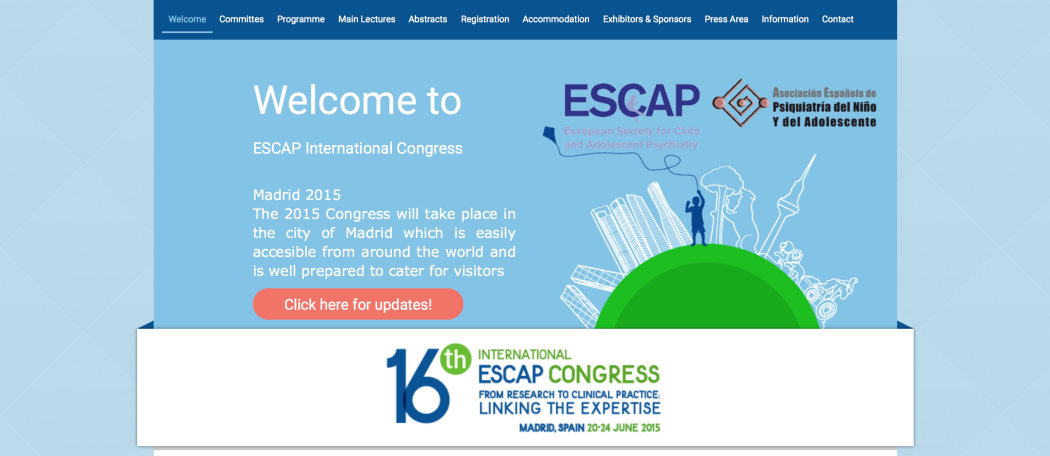EFCAP organized two symposia about Adolescent Forensic Research and Psychiatric Services across Europe at the ESCAP congress in Madrid (2015). You can find the two symposia abstracts below.
Adolescent forensic research in Europe I. An EFCAP symposium
- Recidivism and Personality in a Swiss Adolescent Prison Population. Dr. Madleina Manetsch, University of Basel, Switzerland.
- Criminal recidivism in a delinquent child welfare sample. A longitudinal study. Professor Klaus Schmeck, Kinder- und Jugendpsychiatrische Klinik Universitäre Psychiatrische Kliniken (UPK) Basel, Switzerland.
- Risk factors in juvenile forensic psychiatric patients: a latent class analysis. Professor dr Chijs van Nieuwenhuizen, Tilburg University, Scientific Center for Care & Welfare (Tranzo), and GGzE Center for child and adolescent psychiatry.
- Forensic Child and Adolescent Mental Health (FCAMHS) in the United Kingdom : Who is Doing What, Where and How? Dr Nick Hindley, Consultant Child and Adolescent Forensic Psychiatrist, Thames Valley Forensic Child and Adolescent Forensic Mental Health Service, Oxford Health NHS Foundation Trust, Oxford and Oxford University, UK.
Adolescent forensic research in Europe II. An EFCAP symposium
- The relationship between self-rated psychopathic traits and psychopathology in a sample of Finnish non-referred adolescents. Dr Svetlana Oshukova, Helsinki University Hospital and Unviersity of Hesinki, Finland.
- Behavioral effects of neurofeedback in adolescents with ADHD: A Randomized Controlled Trial. Professor dr. Chijs van Nieuwenhuizen, Tilburg University, Scientific Center for Care & Welfare (Tranzo), and GGzE Center for child and adolescent psychiatry.
- Risk factors for violent and disruptive behaviours in adolescent institutionalized care. professor Riittakerttu Kaltiala-Heino, University of Tampere and Tampere University Hospital, Finland.
- Characteristics and Specificities of Juvenile Sexual Offenders. Professor Ricardo Barroso, Department of Psychology, University of Trás-os-Montes and Alto Douro (Portugal), and Faculty of Psychology, University of Porto, Portugal.

